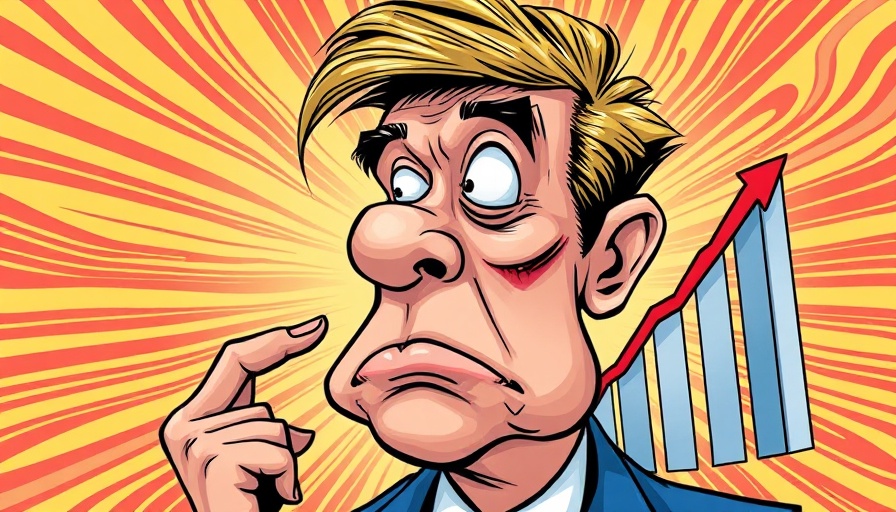
The Ominous Decline of Trump's Meme Coin
The recent plunge of Donald Trump's meme coin, trading under the ticker $TRUMP, has raised considerable concern among small business owners and investors alike. Launched in January, just prior to the president's second inauguration, the token initially gained traction, surging to around $74. However, cryptocurrency fluctuations, coupled with political tensions tied to Trump's tariff plans, have since hammered its value down to an all-time low of approximately $12.23. This sharp devaluation poses potential risks for small business owners who may have invested in cryptocurrencies either as a speculative financial instrument or as a means to engage a digitally-savvy customer base.
What is a Meme Coin and Why $TRUMP Matters
Meme coins like $TRUMP often capitalize on cultural and social phenomena, attracting speculative investors hoping to ride the wave of popularity. Despite the idea that these tokens may express popular sentiment rather than serve as reliable investments, the volatility associated with the $TRUMP coin exemplifies a broader trend affecting the crypto market. Reports indicate over 810,000 crypto wallets collectively suffered losses exceeding $2 billion due to the coin's decline.
Historical Context: Cryptocurrencies on the Rise
The cryptocurrency market has seen explosive growth in recent years, propelled by a surge in interest from both retail and institutional investors. Cryptos like Bitcoin dramatically increased in value during Trump's presidency, indicating a complex relationship between political events and economic phenomena. The rise of meme-based tokens has signaled a shift in how cryptocurrencies are perceived; they are not merely financial instruments but also reflections of social trends.
Financial Fallout and Ethical Implications
The implications of Trump's financial maneuvers extend beyond a mere drop in meme coin value. An analysis highlighted how Trump and his family may have accrued up to $100 million in trading fees from executing these schemes, often at the expense of average investors. Public Citizen, a watchdog group, has raised serious concerns regarding potential violations of ethics laws. As small business owners contemplate the risks tied to investing in such volatile instruments, the ethical quandaries surrounding political endorsements of cryptocurrencies become ever more salient.
The Future of Meme Coins: Speculation or Viable Investment?
The question remains whether meme coins will find a permanent place within the cryptocurrency ecosystem or whether they represent fleeting moments of popularity. Analysts suggest that, without substantial backing or a unique value proposition, coins like $TRUMP may be on borrowed time. For small business owners grappling with whether to invest in cryptocurrencies, understanding the speculative nature of these tokens is vital.
Actionable Insights for Investors
For small business owners considering investing in cryptocurrency, it is essential to conduct thorough research and develop a long-term strategy. Engaging with reputable financial advisors, participating in educational platforms, and understanding the risks associated with high volatility assets can serve as crucial steps toward informed decision-making. Furthermore, keeping abreast of regulatory developments is instrumental as authorities increasingly scrutinize the cryptocurrency market.
Lessons Learned: The Importance of Due Diligence
$TRUMP's rapid ascent and subsequent downfall serves as a cautionary tale for investors. Thorough due diligence and awareness of market trends are paramount for anyone contemplating investments in meme coins or other cryptocurrencies. Potential investors must also consider the long-term viability of their investments and refrain from making impulsive purchasing decisions based on hype.
As the cryptocurrency landscape evolves, small business owners and investors alike should strategize wisely and prioritize their financial health in the face of overwhelming volatility. In an economy increasingly influenced by digital currencies, understanding these dynamics will define the future of investment strategies.
 Add Row
Add Row  Add
Add 


 Add Row
Add Row  Add
Add 

Write A Comment